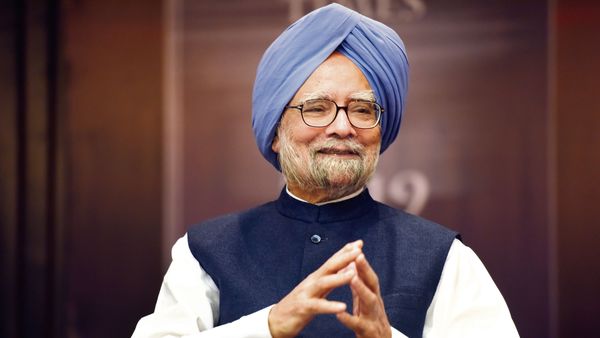As environment minister in the Manmohan Singh government, Jairam Ramesh was often called 'Dr No' for his stand on environment clearances. In his fourth and latest book, Green Signals: Ecology, Growth and Democracy in India, Ramesh chronicles his contentious ministerial stint.
Excerpts from an interview: Manmohan Singh reminded you when you took over that rapid economic growth was needed. Were you ever asked to toe the line?
He was always sensitive. He said that he didn't want me to sacrifice environmental concern or due diligence, but at the same time not to forget that we need to get onto an 8 or 9 per cent growth path. At no point of time did I get any instruction from him.
You have said that your stint was tumultuous.
Issues that came up were contentious.
Sometimes the decisions would favour economic growth considerations like the Jaitapur power park. Sometimes the decisions would favour environmental considerations like the Vedanta bauxite mining case in Niyamgiri. There were three categories, ‘yes', ‘yes, but' and ‘no'.
In coal, it created somewhat of a controversy based on the ‘go, no-go' forest areas that were suggested to me by former chairman of Coal India [Partha Bhattacharyya].
We did a joint exercise. We studied nine major coalfields and found that 70 per cent of the coal blocks were in ‘go' areas but 30 per cent were in inviolate areas such as rich forest and biodiversity. Now 70-30 has come down to 90-10 and will probably come down to 95-5. The dilution had started in our government as well but has got accelerated thereafter.
Why did you write ‘Green Signals'?
It is not a memoir; this book is a written anthology about what went into the decision-making. I take pride in [that] I brought environment into the national mainstream.
The tenth Five-Year-Plan was rapid growth, the eleventh Five-Year-Plan was rapid and inclusive growth and the twelfth Five-Year-Plan was rapid, inclusive and sustainable growth. Sustainability, climate change and green growth became issues in which the media, Parliament and the government got interested. You didn't get much support from your cabinet colleagues and Congress chief ministers.
Many Congress chief ministers were upset with me. Some non-Congress CMs were also upset with me, and many who were upset with me on one issue supported me on other issues. The Madhya Pradesh CM who was upset about a hydel project became a supporter on Bt brinjal.
My good friend Sunita Narain was extremely critical when I gave environmental clearance for Jaitapur nuclear park. Praful Patel, who I locked horns with for over a year over the Navi Mumbai airport, is a close friend.
What do you make of the current environment ministry?
There is a lot of good intent in this government. I support the government's bold push on solar energy. The government has made fine philosophical noises, [but] what I find particularly troublesome [is the] Priya Pillai or the Greenpeace case.
There is a shrinking of space for activists. Single-minded obsession with GDP growth is not in India's national interest.
What about Prakash Javadekar's performance as environment minister?
Is there a thing called an environment minister today? Maximum governance, minimum government has been interpreted by Narendra Modi to mean maximum governance, one-man government. Manmohan Singh has been summoned in the coal scam.
I find it outrageous because Manmohan Singh is the epitome of academic distinction. We are with him. He was coal minister and he took decisions. If you don't take decisions, you say policy paralysis; if you take decisions, then you say he is favouring.

